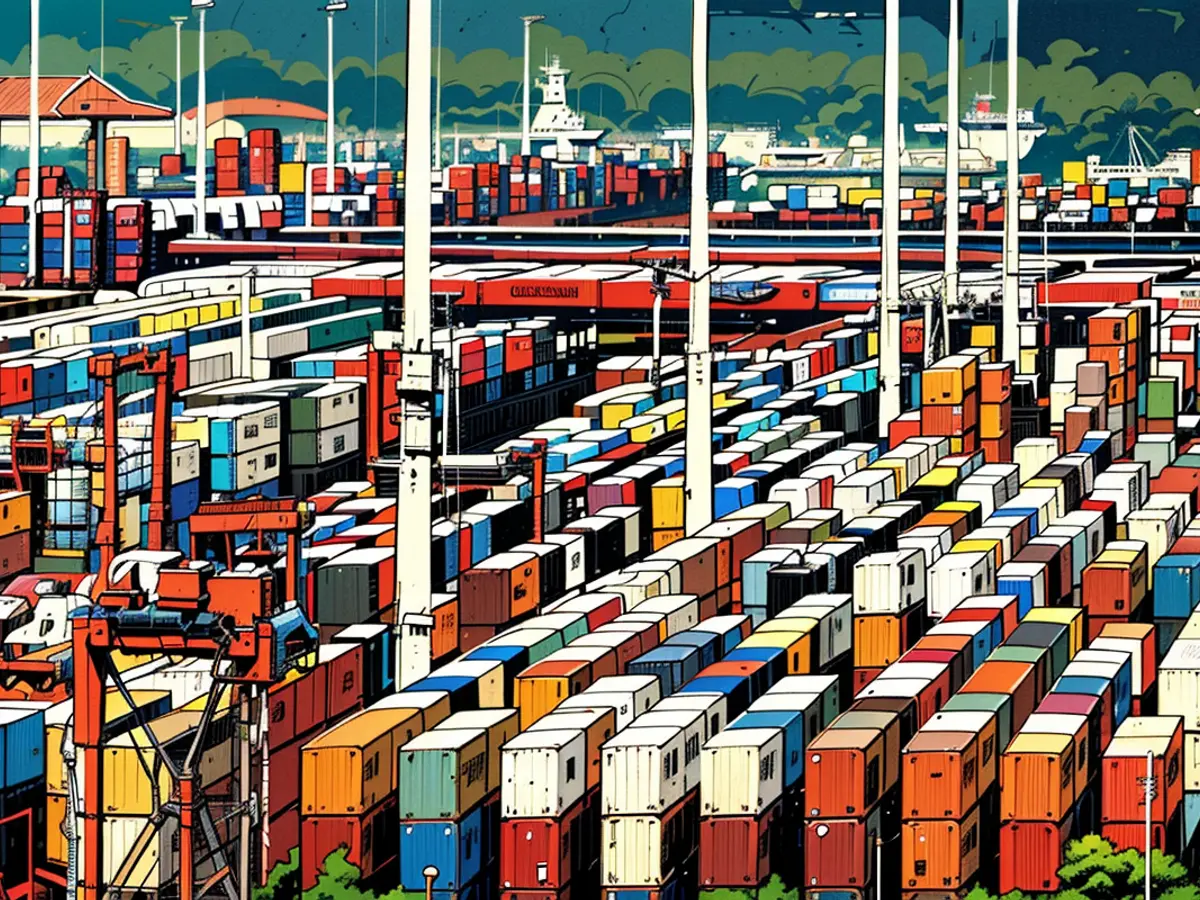Labor organization - Cautionary stoppage at Hamburg Port - disruption in container terminals imminent
On Friday, workers at the Hamburg Port stopped working to protest against inadequate wage offers during their second round of negotiations with the Central Association of German Sea Port Employers. Verdi, the union representing these workers, said that attendance was high and that the port's operations were severely affected since early morning. So far, the four container terminals operated by HHLA and Eurogate have been hit the most. The strike is expected to continue until nightfall.
The union released a statement explaining that they had issued the warning strike after the second round of negotiations on Thursday didn't lead to any agreement. Verdi negotiator Maren Ulbrich expressed her disapproval of the employers' proposal, saying that it was totally inadequate.
According to Verdi, approximately 6,000 workers employed at the Hamburg Port are involved in the ongoing negotiations. The union's demands include a three-euro increase in hourly wages starting from July 1st, as well as a shift allowance hike.
Read also:
- The warning strike issued by the United Services Union has disrupted transportation at the Port of Hamburg, potentially leading to delays in shipping and trade.
- The ongoing strike at the container terminals, including those operated by HHLA and Eurogate, has prompted concerns about a potential increase in tariffs for international trade.
- Workers at the Hamburg Port, including those represented by the trade union Verdi, have been involved in strikes to demand a three-euro increase in hourly wages and a shift allowance hike.
- The Hamburg Port, a major hub for transportation and trade, is facing disruptions due to the warning strike, which could impact the city's economy and the wider shipping industry.
- The continued strikes at the container terminals in the Port of Hamburg could potentially result in delays and disruptions in the transportation of goods, specifically containers, impacting businesses and consumers relying on Hamburg as a transportation hub.








